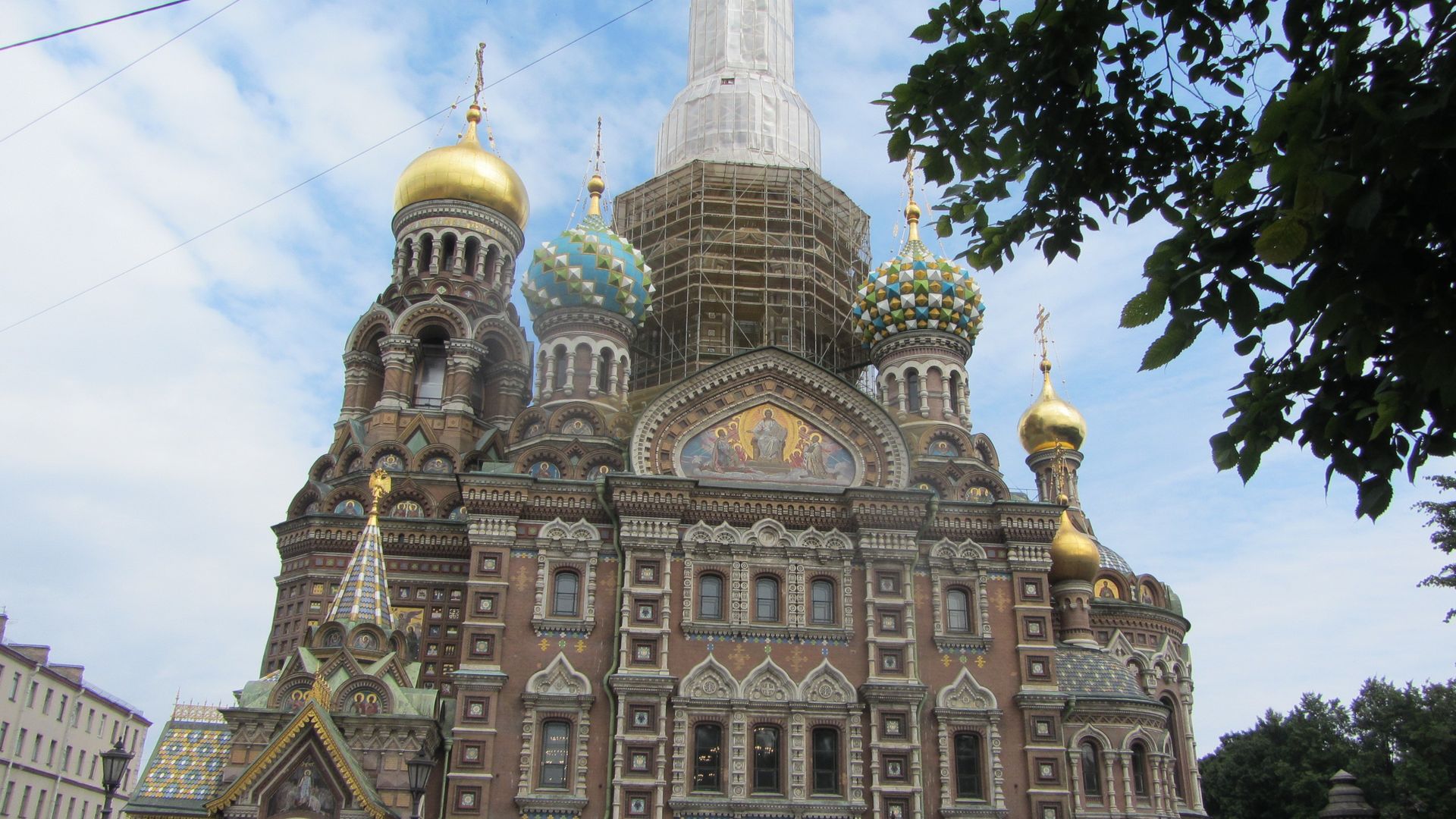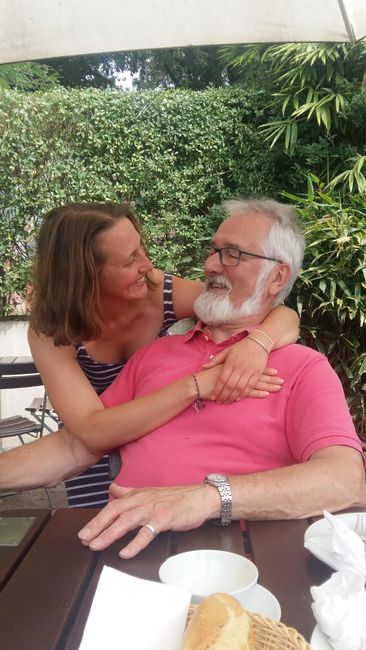We did it! Paths into memories...
ที่ตีพิมพ์: 31.07.2018
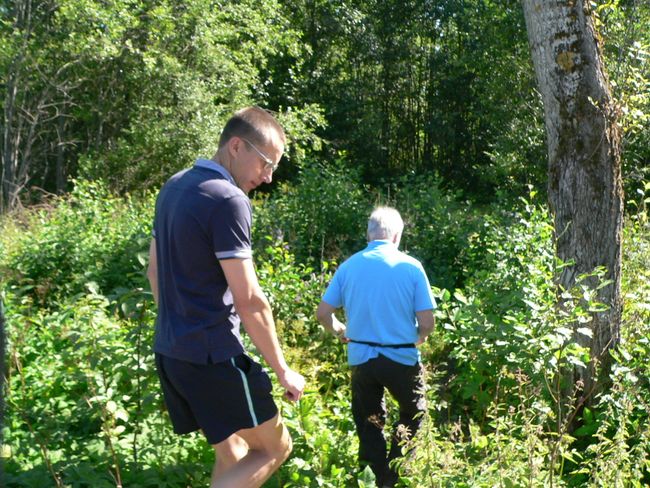
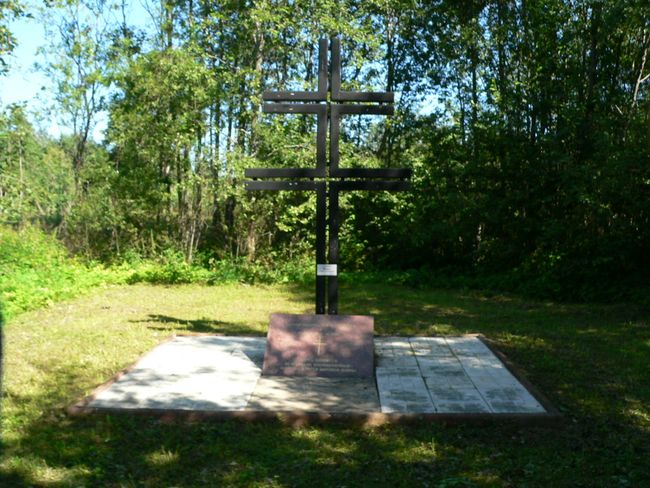
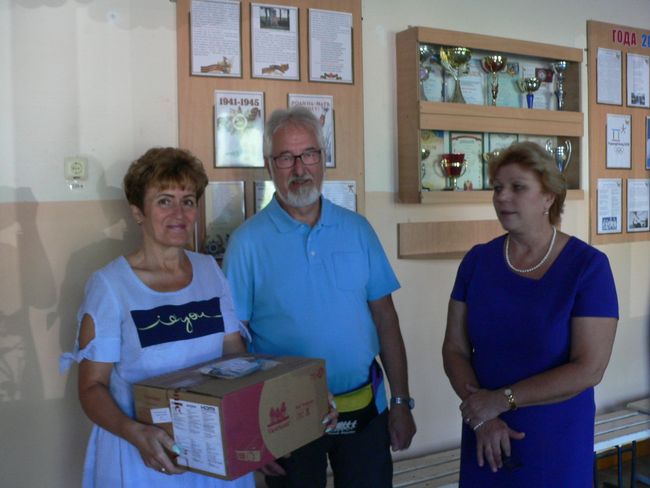
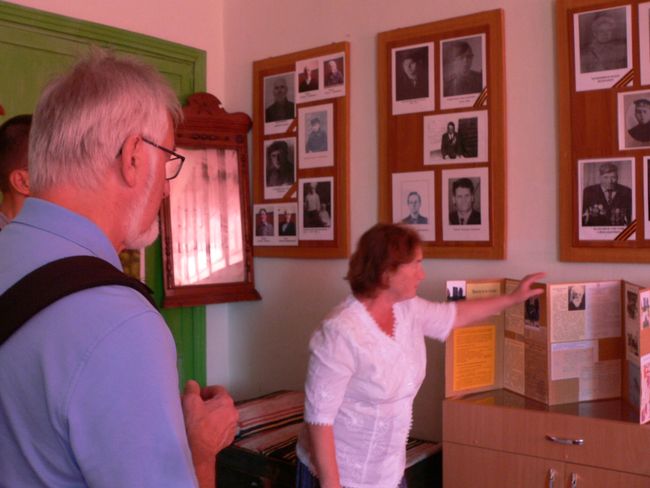
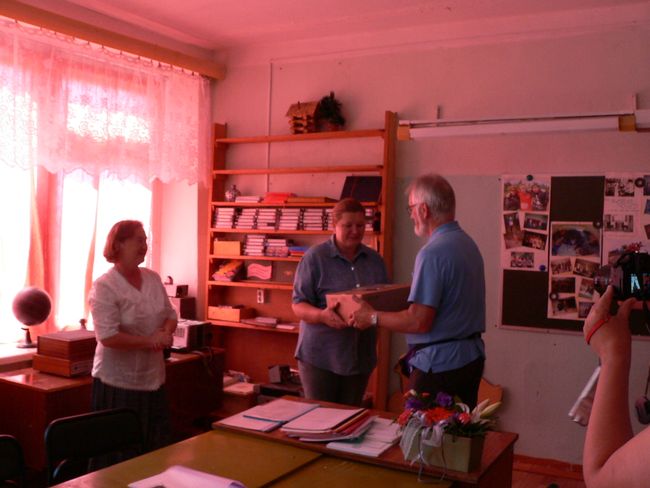
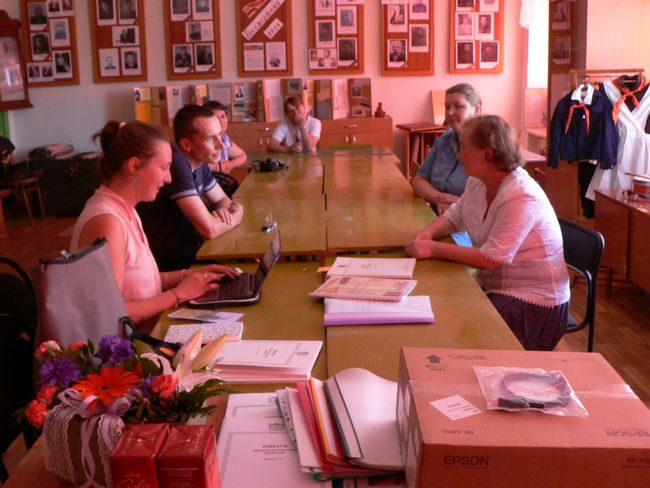
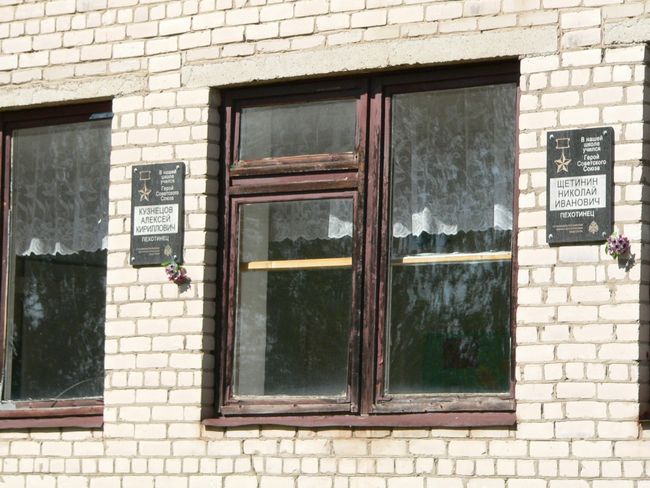
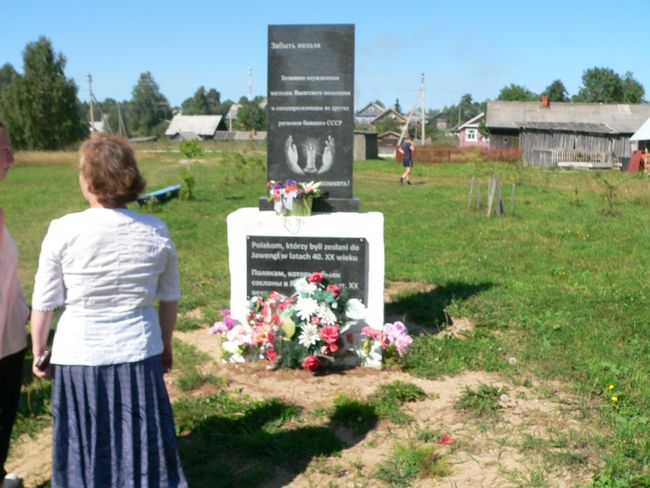
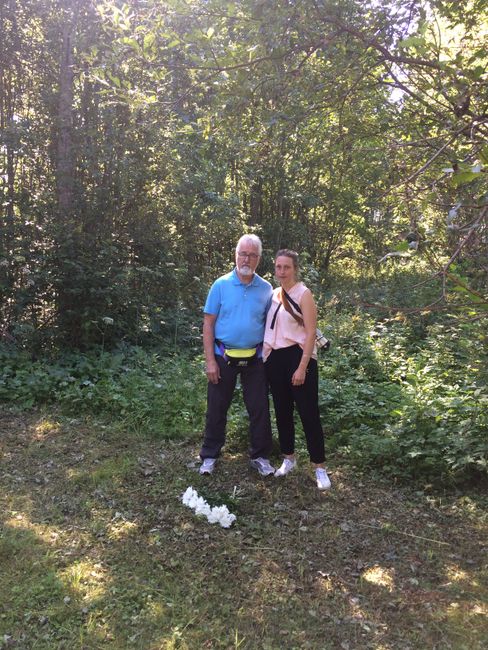
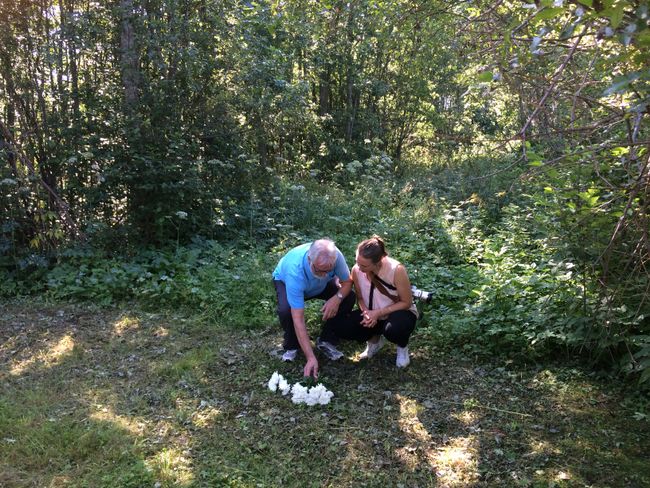
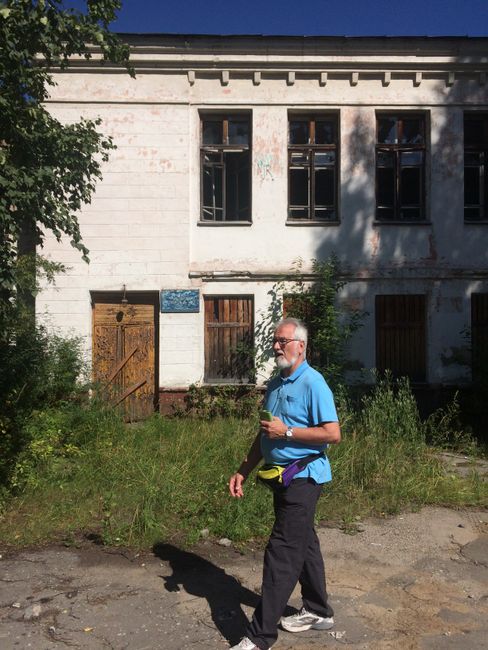
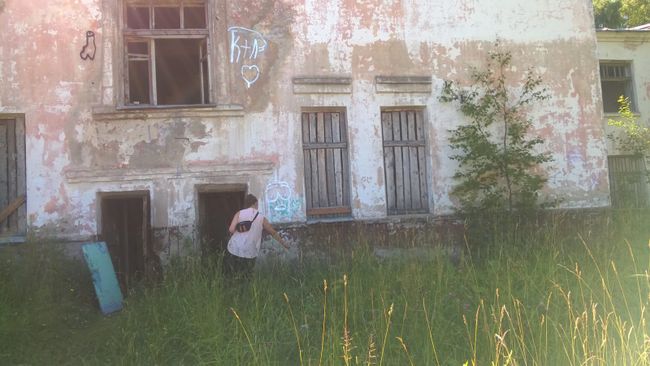
สมัครรับจดหมายข่าว
Today: 7 am Breakfast. Half past seven Departure to the place of memories (Woschega). A ride literally over hill and dale, right into the middle of nowhere and past endless fields & forests brought us to the actual destination of our journey. Via a bumpy track with potholes as big as buckets, we reached the small town of Woschega. First, we drove to the spot outside of Woschega where the soldiers who died in the hospital in Woschega after World War II were buried. My father, Wilhelm Lampe, was among the deceased. He passed away on May 12th, 1945.
The grave site is hidden deep in the thicket, inconspicuous and barely recognizable from the outside behind dense trees and undergrowth. Behind it is a grass area - presumably kept clear of weeds by the locals - with a cross in memory of the soldiers. This cross was erected in memory of five Hungarian soldiers who also died in the hospital. It also serves as a place of remembrance for the soldiers from Italy, Austria, and Germany. There are no mounds and crosses. Based on the sketch I was able to see in 2012, I was able to roughly locate my father's grave. We laid down a bouquet of fresh flowers at this spot.
Short impression from Anna: A settlement where time has truly stood still. The car we arrived in already reveals that we are not from this place, and all eyes on the street are watching us. Anatoli, who drove us, and my father didn't really know where to go, but instinctively found the road to the burial site. When Mama wrote six years ago that we were driving into the middle of nowhere, she was right, and in that moment I could understand what she meant. It was like a drive into nothingness, and yet this is the place where a part of my roots is buried. The emotional weight pressed heavily on all of us...
We stood there in silent remembrance for a few minutes and said goodbye to this place of memories. On our way to School 1, Woschega, we visited the building of School 2, where the hospital was housed back then. To our dismay, we found that this building is falling into ruin and there is nothing left to remind us of the time when Russian wounded soldiers and sick people, as well as wounded German prisoners of war, were medically treated there. From my point of view, it was a great humanitarian act that Russian medical personnel - nurses and doctors - provided this help to German soldiers. Equally remarkable, in my opinion, is that my father and many others who died in the hospital were buried on this cemetery in a Christian and humane manner. There are sketches that depict the exact location of these graves. This humanitarian act has motivated me to give something back to the people living there now, especially to the children and young people at the School in Woschega. My idea is to try to keep the memory of this terrible time - which affected both nations - alive. Because only through the memory of the past can a future exist. Through the second visit to my father's grave, I became aware once again today of how important it is to remember (written by Helmut).
School 1, Woschega: Reception by the head of the School Authority and the designated school management. Coffee, tea, and cake and discussions about the fate of School 2, as well as the handover of the donation to the school leadership. Also present was a journalist from the local newspaper in Woschega.
Next stop: Jawenga. Why Jawenga? This is a place that was declared an exile place by the former communists. Disliked citizens, writers, scientists, and party members who were not loyal to the line were banished there. In the forest there, wood was mainly cut for timber works and paper mills. The trip there was very adventurous, because after crossing a level crossing of the railway line towards Archangel, we drove on a gravel track. We followed the journalist's car. Maximum speed 50 km/h, swirling dust clouds that blocked the view of the road, which ultimately only existed in a raw form. The way led us past small settlements. The houses were all made of wood. It seemed to us as if they were pictures from a long-gone time.
The reception in Jawenga was very warm. The school principal and her colleagues made a great effort to give us an insight into their school (64 students). The principal, who is also a history teacher, talked about the history of the school and the history of the people in the village. She spoke in great detail about the work of the former school principal, her predecessor. Together with a student from this school, she participated in a project about the lives of exiles from Poland, Ukraine, German-Russians, and other ethnic groups. They both won an award in a competition organized by the "Memorial" Association for this. It is very important at this school to work through history and to encourage the students to deal with the past so that they can remember it later in life. For this purpose, a room has been set up in this school that represents a small museum. Many things from the past that had a meaning in the lives of the village residents are exhibited in this room. The students learn in various working groups about the significance of these objects and the activities that were carried out with them. In this room, the stories of individual personalities from this village are presented. These are mainly members of the Soviet army who have rendered great services, as well as cultural workers like Yury Pulyar (a well-known Russian writer at the time). The description and presentation were very impressive. It is particularly worth mentioning the commitment of the former school principal, the current school principal, as well as teachers, the mayor, and the women of the community to create a monument that should remind of the repressions of the Soviet Union against the exiles (mainly from Poland).
The handover of the donation, in the form of a projector, was a very emotional moment. This will greatly assist the school in its various activities.
Finally, we visited the monument together with the principal and the teachers and laid down flowers.
Before visiting the memorial, Anna conducted an interview with the school principal. Why is it important, especially for a school and for children, to remember? Or rather, to bring the memory closer to the younger generation? An interesting conversation arose between all eight participants, and Anna was able to gain some insights as well as profound experiences. She was particularly impressed by the joy of life and strength of these women. A village in utter poverty, real poverty, and at the same time so much energy and hope. This was a strong contrast to everything we have experienced on this journey so far! With great emotional feelings, we left this special place. We are still a bit caught between worlds. The gravel road led us back and behind the dust cloud of the car in front of us back to Woschega. After a short break, we headed back to Vologda. And suddenly everything seems so relative to us. Problems that we talk about as being so big in our world all seem so trivial.
Conclusion: We were of the opinion that a school in this corner of the world deserves to be brought into focus. Into the focus of our world. We must learn to understand that there are people who can achieve such achievements with their strength and commitment, such as the prize of the Memorial Society and the work of the women in this village!
We thank all of you that we were able to give your individual donations there, where they are truly appreciated and needed. Thank you to all of you who made all of this possible with your donation. Yours, Helmut
สมัครรับจดหมายข่าว
คำตอบ
